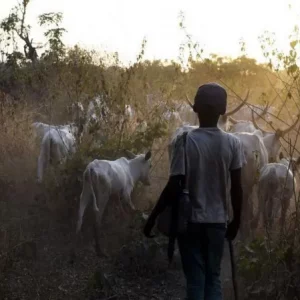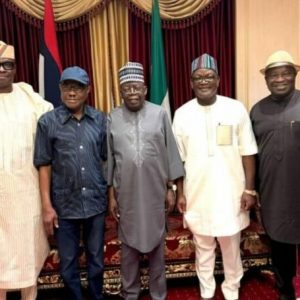U.S. President Donald Trump may be preparing to reinstate and expand his controversial travel ban to include Nigeria and 35 other nations.
This is according to an internal U.S. State Department memo obtained by The Washington Post.
The memo, signed by Secretary of State Marco Rubio, gave the targeted countries a 60-day deadline to comply with new U.S. immigration and security requirements or face full or partial restrictions on the entry of their citizens into the United States.

Nigeria is listed among 25 African nations identified in the document, alongside countries like Egypt, Ethiopia, Cameroon, Ghana, and South Sudan. Other nations named include Caribbean states such as Saint Kitts and Nevis, Central Asian countries like Kyrgyzstan, and several Pacific Island nations.
The proposed restrictions are part of a broader expansion of a presidential proclamation issued on June 4, which had already imposed travel limitations on citizens from Afghanistan, Iran, Myanmar, Somalia, and other countries.
The memo outlines various reasons for the potential visa restrictions. Among them are the lack of a reliable central authority to issue trustworthy identity or civil documents, widespread governmental fraud, and the high rate of U.S. visa overstays by citizens from the affected countries.
In the case of Nigeria, which has historically struggled with visa overstay rates in the U.S., the document suggests that the country may be penalised if it fails to meet improved documentation standards or cooperate more fully on deportation procedures.
The memo also flags other issues, such as countries offering citizenship in exchange for monetary investment without a residency requirement, and claims of antisemitic or anti-American activity linked to individuals from some of the listed nations.
The communication, sent to U.S. embassies and consulates around the world, requested that the concerned nations submit an initial action plan by 8 a.m. Wednesday outlining how they intended to meet the new standards.
While it remains unclear when the proposed restrictions would be enforced, the memo signals a sharp return to Trump-era immigration policies, which were defined by a series of controversial travel bans targeting Muslim-majority and African nations.
This is not the first time Nigeria has found itself in Washington’s immigration spotlight. During Trump’s previous administration, Nigeria faced temporary visa restrictions, particularly for immigrant visas, citing national security and information-sharing concerns.
Although the Biden administration reversed those bans upon taking office in 2021, Trump has continued to campaign on promises to not only reinstate the travel ban but to broaden its reach. “It will be bigger than before,” he vowed on the campaign trail.
Human rights advocates and political opponents of the president have condemned the move as discriminatory.
“Blanket bans that disproportionately affect African and Caribbean nations reflect a troubling trend of xenophobia and racism,” said a U.S.-based immigration lawyer.
Trump’s original 2017 travel ban targeting several Muslim-majority countries sparked global outrage, legal battles, and mass confusion at airports. While the U.S. Supreme Court eventually upheld a revised version of the ban in 2018, critics argue that such policies damage America’s global image and relations.
Besides Nigeria, the other countries reportedly under scrutiny include: Angola, Benin, Burkina Faso, Cabo Verde, Democratic Republic of Congo, Djibouti, Gabon, Gambia, Ivory Coast, Liberia, Malawi, Mauritania, Niger, Sao Tome and Principe, Senegal, Tanzania, Uganda, Zambia, and Zimbabwe.
Others are: Antigua and Barbuda, Dominica, Saint Lucia, Bhutan, Cambodia, Egypt, Ethiopia, Syria, Tonga, Tuvalu, Kyrgyzstan, South Sudan, Saint Kitts and Nevis, and Vanuatu.
Stay ahead with the latest updates!
Join The Podium Media on WhatsApp for real-time news alerts, breaking stories, and exclusive content delivered straight to your phone. Don’t miss a headline — subscribe now!
Chat with Us on WhatsApp






